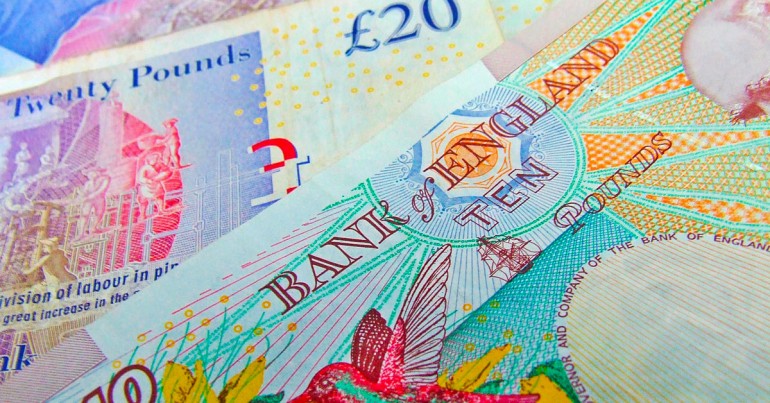
Proud pound
Sterling enjoyed a strong end to what was a positive month. It strengthened by an average of 1.5% against the other dozen most actively-traded currencies, picking up half a euro cent and one US cent. The pound’s biggest weekly gain was the 2.6% it took from the Japanese yen. Investors decided they did not need the safe-haven currency, especially after the Bank of Japan said it would plough ahead with its money-printing for the foreseeable future.
It is not often that there is the chance to say this but sterling was also the best-performing major currency over the last month, rising by an average of 3.2%. The icing on the cake is that it has also been the top performer through the first four months of 2017, coincidentally also with an average gain of 3.2%. Since the turn of the year it has firmed by one and a half euro cents, three Swiss cents and five US cents.
Optimism
The first round of the French presidential election continued to help the euro along. It took second place for the week behind the pound, adding half a US cent. Opinion polls still put Emmanuel Macron well ahead of Marine Le Pen for this weekend’s run-off, most recently with a 60%-40% split. Although there are doubts about voters’ commitment to turning out in support of M. Macron on Sunday, investors believe France is not about to elect an anti-euro president and that the status quo will be reaffirmed by Monday.
At Thursday’s European Central Bank press conference its president had a guardedly upbeat tone. Mario Draghi’s summary was that “The risks surrounding the euro zone growth outlook, while moving to a more balanced configuration, are still tilted to the downside and relate predominantly to global factors.” However, the reference to “global factors” implies that the main risk does not lie within Euroland itself. Although there is still no imminent prospect of the EBC (European Central Bank) winding down its asset purchase programme, there seems to be equally little chance of it being beefed up.
S-bends not U-turns
Not for the first time, Donald Trump was re-swapping horses in mid-stream. His preferences for a weaker/stronger/weaker dollar and lower/higher/lower interest rates are well-documented. This time the specialist subject was the North American Free Trade Agreement (NAFTA). Having promised to scrap it during the election campaign he later said it would instead be renegotiated. Last week the White House suggested NAFTA would indeed be terminated. Later the same day the president said that would not happen “at this time”. Story and counter-story sent the Mexican peso and Canadian dollar first lower, then higher.
Investors were not overly impressed when the president unveiled his tax reform proposals. Whilst they agree that lower taxes and a simplified system would be potentially positive for the economy and the currency, they remain to be convinced that Congress will approve the plans.
The good news
The European Stability Mechanism, Euroland’s bailout fund, has said it is satisfied with the reforms to pensions and income tax implemented by Greece. That approval should unlock the EU coffers to provide Athens with the next round of bailout payments.
The bad news
Most, if not all, of that bailout money will be going straight back to Greece’s EU creditors to repay the €16bn of loans that mature between now and 20 July. Any serious fiscal progress for the country will depend on some of those loans being written off or rescheduled by creditors. As yet there is no appetite for such a move, especially in Germany.
Sarah, Senior Account Manager at Moneycorp
Moneycorp is one of the largest international payment companies supporting over 90 currencies. Last year Moneycorp traded over £22.6 billion worth of international money transfers. Find out how Moneycorp can help you with your international transfer here.






